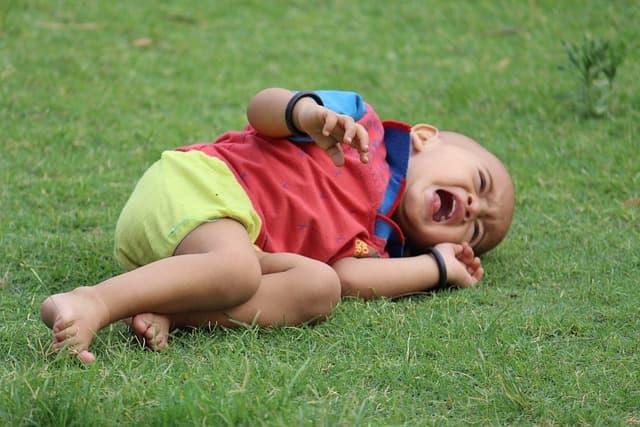The behavior of children is of great importance in their growth and development process. Indeed, it conditions their ability to adapt to the world around them and to acquire social abilities necessary for their welfare and their development. It is therefore essential to understand how children behave and what factors influence their behavior.
Factors Influencing Children's Behavior
Many factors can influence the behavior of children including the following factors:
- the temperament,
- self-regulation,
- the fear,
- tiredness,
- insecurity.
Each of these factors can have a positive or negative effect on the behavior of children.





The temperament
First: temperament is the innate character children, that is to say their spontaneous way of reacting to situations. Children with a more difficult temperament may be more impulsive, irritable And reagents than those with an easier temperament. Children with more difficult temperaments may exhibit aggressive or rebellious behavior.
When your child has a restless temperament, by offering him a calm activity such as:
- reading
- a game of assembling the shapes in a sphere
- memo cards
At first he may experience difficulties but eventually if you find an activity that he is passionate about, he will take more and more pleasure and this will allow him to remain calm for part of the day.
In short, the main thing is for these children to alternate the type of activity, to exert themselves enough but also to learn to concentrate for a few minutes at first and then a little more in the future.
Self-regulation
Second: Self-regulation refers to an individual's ability to control one's own actions and his own feelings. Children who have good self-regulation have an easier time controlling their behavior and managing their emotions. From an early age, the child will have his own experience. Each situation experienced, will allow him to learn to react according to what he feels, trying to adapt. He will use a variety of means to achieve his goal.
We all remember our child
- Lying on the changing table, writhing to try to grab the bottle of cleansing milk
- Or when he can't walk and decides to join his favorite toy on the other side of the living room
In these specific cases, the child takes the time to observe, he thinks about how to achieve his goal and as soon as he thinks he has a solution, he tries. This is called experimentation by trial and error“. sometimes he succeeds sometimes he fails.
Therefore, children who multiply experiences, have better self-regulation, they acquire self-confidence more quickly. They are less likely to show inappropriate and aggressive behaviors because they have a better knowledge of their surroundings.
The fear
Third: Fear is a basic emotion in the child. It can be brought on by things like unfamiliar or threatening situations, people or animals. When children are confronted with objects or people they are afraid of, they may show anxious behaviors such as crying, screaming, or refusing to participate in certain activities.
First of all, when the child is afraid, it is necessary to understand what causes this emotion. Sometimes it is a lack of understanding of a past situation, in which case it is essential to take the time to talk about it with him. In order not to let the situation turn into a phobia.
Tiredness
Fourth: Fatigue can play a vital role in children's behavior. If children are tired, they are more likely to exhibit aggressive or rebellious behavior and have difficulty coping with daily demands.
From early childhood to adulthood, sleep plays an essential role in our behavior: mood, activity, work... Each period of life forces us to adapt to our need for sleep.
Parents should ensure that children receive enough sleep and of rest to prevent fatigue from playing a negative role in their behavior.
Insecurity
Fifth: In some situations children may feel insecure, especially when faced with significant changes (such as a new home, new family member, etc.).
For example, during a move that requires a change of school, the child may fear losing his classmates and not being able to make new friends in his new environment.
Therefore, it is essential to reassure him and ensure that he meets children of his age, by inviting children from the neighborhood as soon as you arrive.
When children feel threatened or vulnerable, they may show behaviours defensive as the anger, there leak or theopposition.
How do you encourage positive behavior?
First of all, it is possible to encourage positive behaviors in children by taking into account their needs and by offering learning opportunities appropriate for their age. Here are some tips for encouraging positive behaviors in children:
- Reward good behavior: it is important to recognize and rreward desired behaviors. This will help the child understand that his actions are desirable and appreciated.
- Encourage self-regulation skills: use positive self-regulation techniques to help children control their behavior and resolve conflicts appropriately.
- Teach social skills: teach children the social skills needed to interact appropriately with those around them and learn to respect others.
- Give your children opportunities to explore : Give children the opportunity to explore their environment and discover new things. This will help them develop their autonomy and learn practical skills.
Ultimately, encouraging positive behaviors in children can help them grow and develop their social skills. Although certain factors can influence children's behavior, parents can take steps to promote positive behaviors And healthy in their children.
